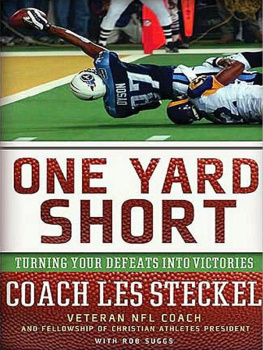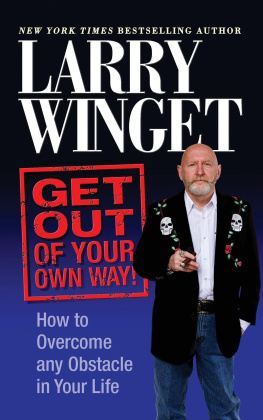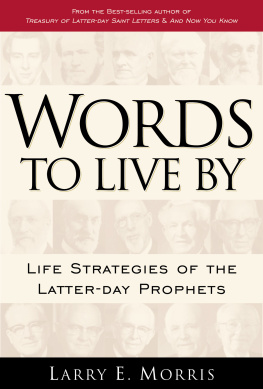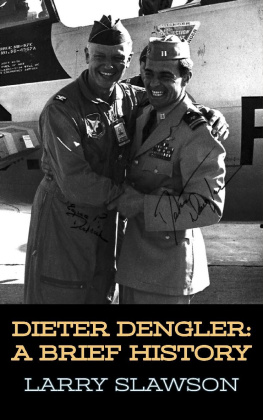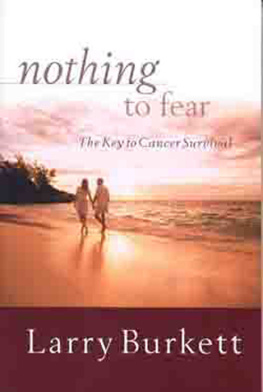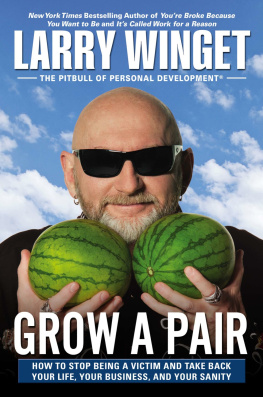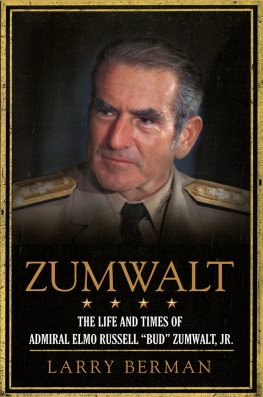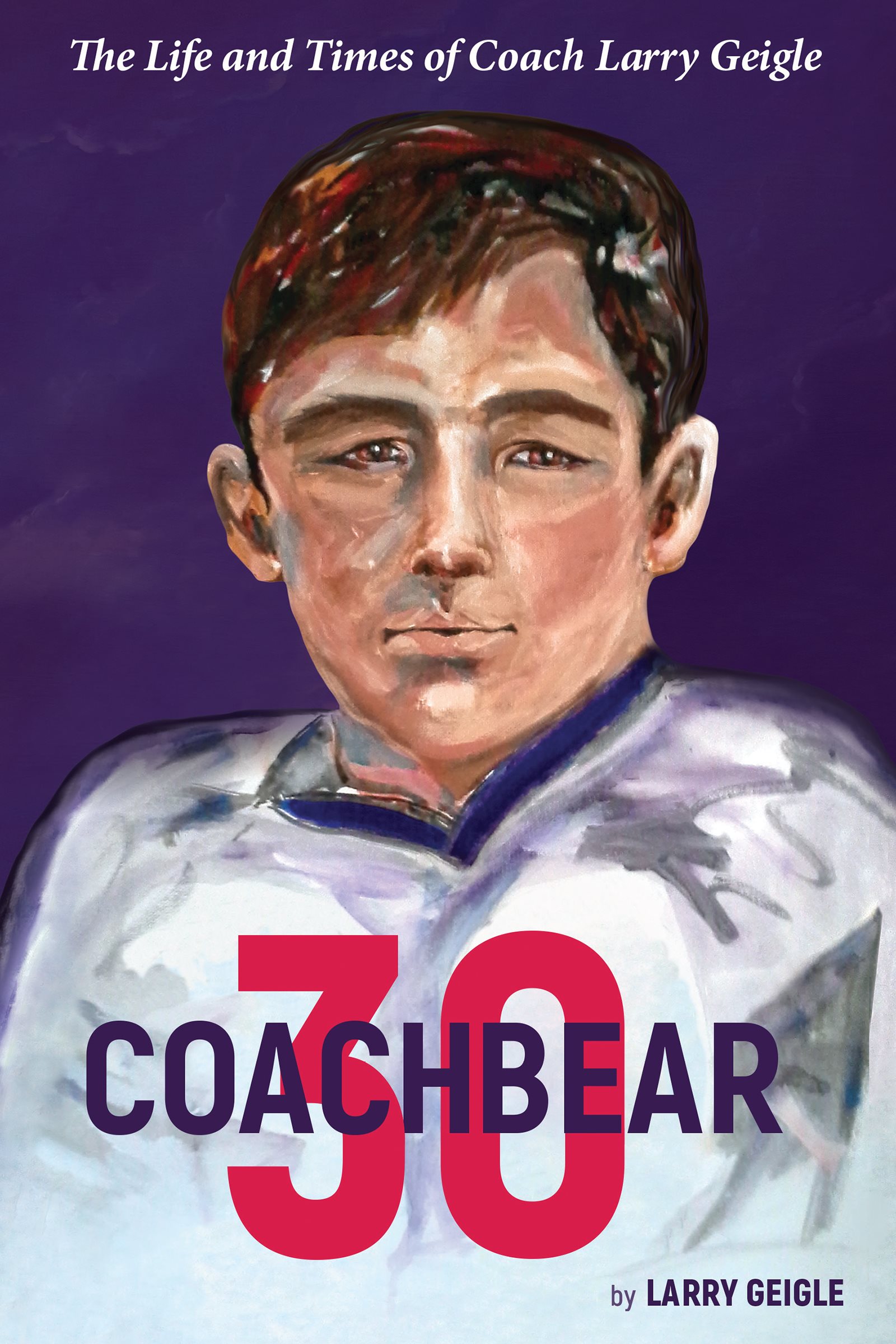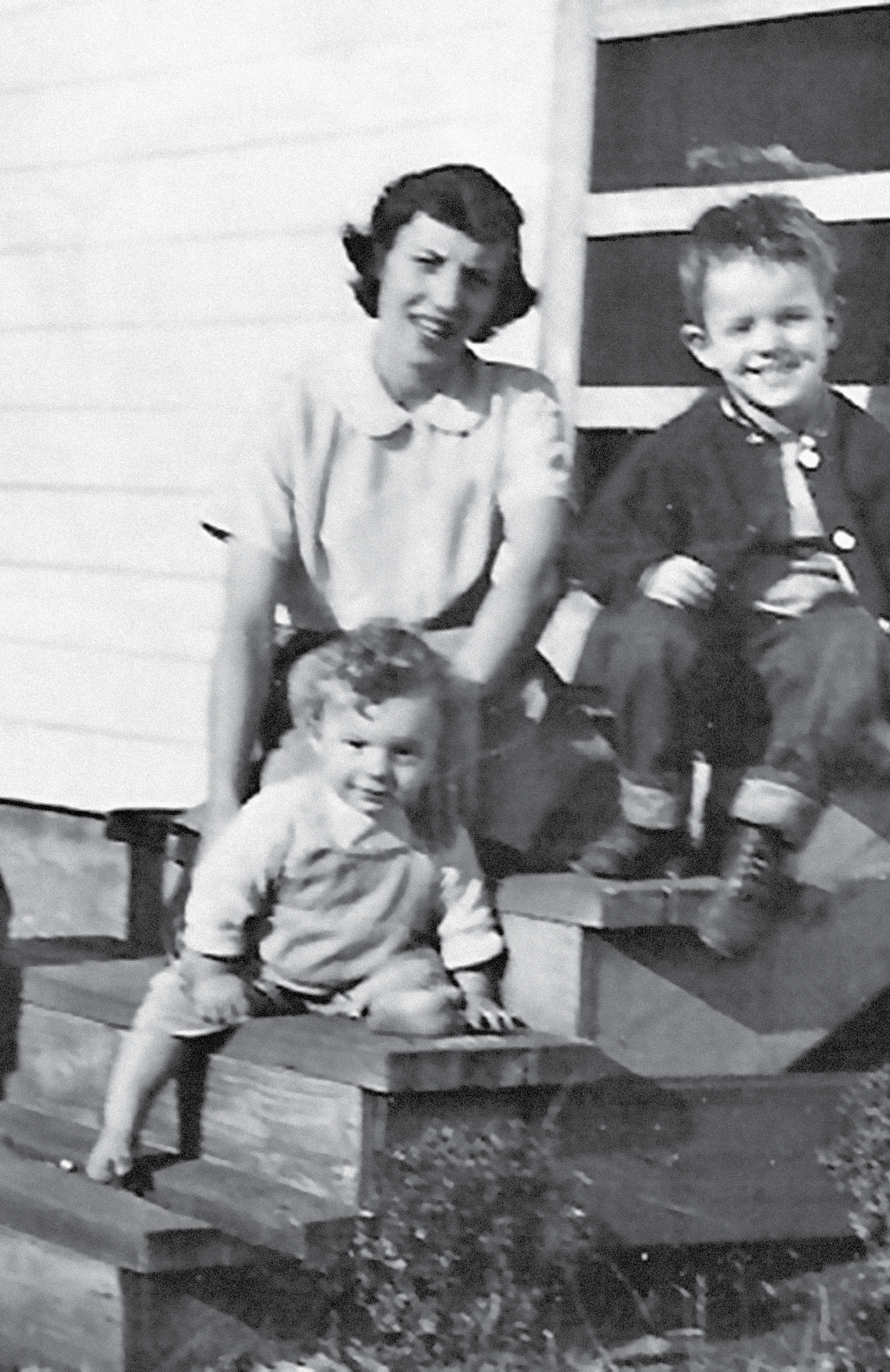Prologue
Larry Geigle, my husband of fifteen years, hobbles over to the table that I have reserved for us in this little coffee shop in McMinnville, Oregon. He is a striking man in his late sixties; his oversized cane makes clomp-clomp-clomp noises on the hardwood floor. He has a full head of stark-white hair and looks healthywith a tanned, outdoorsy complexion, and twinkling brown eyes. The only thing that ages him is his gait, and the cane. As he walks toward me, he lists to starboardalthough he maintains a painless, almost serene expression. In all the years Ive known him, he hasnt changed much.
Coachbear 30 (30 is his high school football jersey number) is on a mission: He wants to write a book about his life for his children and grandchildren, so they might know him a little better. As we sit in the coffee shop, Larry begins to tell his story and what he thinks the book should be about.
He wants his readers to understand that this book is about a young man getting knocked down and getting back up again. Larry stops and looks out the window, then continues to explain his thoughts on the book. He says the book is also about a young man who falls in love with the game of football because his coach believed in him. Then he gets hurt serving his country during the Vietnam War, and ends up losing his childhood sweetheart while having to deal with the effects of PTSD. He fights on, daring to fulfill his dream of being the first in his family to graduate from college and play college football. After trying out and making the team, and overcoming injury and road blocks, he finally plays his first game, setting school records. He is nagged by injury and sickness, and once again, falls short of the recognition he worked so hard to achieve.
After college, he becomes a teacher and coach, helping his students and players find their way. Even though Larry finds comfort in his work, PTSD causes him to stumble and fall once again. His first marriage ends. His life becomes inconsistent. His relationship with his kids suffers. He has no idea why he feels the way he does, but he keeps trying to understand what his fear, mistrust, and anxiety are all about.
After deciding to leave teaching and coaching, he realizes that was a mistake. He again fights his way back, and now finds himself working as an assistant principal. After a few years, even though Larry is well-liked by students, the new principal doesnt agree with Larrys conservative approach. Larry resigns as assistant principal and decides to go back to the classroom as a teacher and coach. He has begun to realize how much the accident in Viet Nam has contributed to a lifetime of pain and anxiety.
In 2003, Larry decided to talk to the US Department of Veterans Affairs regarding issues he felt were affecting his life. Though he had lived with PTSD for over thirty years, the VA denied his claim. For the next three years, Larry and I kept trying to get him help, and after countless attempts and numerous frustrating hospital visits, Larry was finally awarded disability for his PTSD. Even though he has lived with PTSD since 1970, the VA still has not compensated him for all the years before compensation was granted.
Like most of us, he is now doing as hes always done: the best that he can. Even though he is still suffering from PTSD, he hopes that by reading this book you will see that he has been able to have some great moments along the way.
I doubt that anyone wakes up in the morning and says to himself, Today is going to be an awful day! Larry is still full of hopes and dreams, and he continues to look for happiness. Hes sure he is going to win Publishers Clearing House somedayso hes having fun keeping a positive outlook as much as he can. Hes a good man who loves God, life, his children, grandchildren, stepchildren, friends, wife, and Linfield footballnot necessarily in that order! He tries to attend as many of his grandkids sporting events and milestones as he can, and he hopes his children and grandchildren will get to know their grandfather a little better after reading his story.
His example of not giving up is a lesson for all of us. He would like his readersespecially his children and grandchildrento remember that no matter how hard you get knocked down, you get back up, give them hell, and always do the right thing.
Paula Geigle
March 2018
Chapter Image
Chapter One
Early Years
In 1954, when I was five years old, I can remember looking down a steep hill in front of our house in Oakland, California. The kids in the neighborhood were having great fun riding down this monster hill, on two roller skates attached to the bottom of a two-by-four. Even though you wore out the seat of your blue jeans on the cement road, you could expect a thrilling ride. The biggest thrill came at the bottom of the hill, because thats where the road ended. Somehow, you had to stop before getting hit by a car passing through the intersection, or before you hit the curb at the end of the street and launched yourself into outer-space. We would stick our feet out, using the heels of our tennis shoes to avoid danger. Somehow, we stopped ourselves, or crashedor did whatever else it took to stop.
Mom, Dad, and my brothers Mike, Steve and I lived in a small rental home. We had moved to Oakland from Portland, Oregon, after my father had received a promotion. He was now the manager of the shoe department of a Nordstrom in downtown Oakland. We werent rich, and didnt have fancy toys, so we three boys came up with a lot of ways to have fun using our imaginations. We were good kids, but full of energy, and we always found new ways to have fun without killing ourselvesalthough sometimes we got banged up a little. Mike was the oldest, at eight years old. Steve was six, and I was the youngest, at five.
The Garage Hole
One summer day, while my father was at work, the three of us were hanging out in the garage. We decided it would be great to build a fort. We dug out the floor of the garage and covered the hole with a big piece of plywood. We worked all day. It wasnt easy; all the dirt had to be piled outside in the yard, so it took a huge effort. We were determined to have the fort, thinking it would make an excellent hideout. We talked about putting some household items in it to make it comfortablemaybe a table and some chairs, along with a nice candle for light. We finally got the hole dug, and were pretty tired, to say the least. Then we found some old pieces of plywood and covered the hole. You couldnt even tell it was there.
When my father came home from work that night no one had warned him about our new fort. He drove his car into the garage andyou guessed ithe drove right into the hole. When we heard the crash, we all ran out to the garage. There was Dad, sitting in the car, surrounded by a big cloud of dust, with the funniest expression on his face. We took one look and ran for it! I think Dad had to crawl out the back window to get out of the car.
One thing I loved about my dad was that he loved his children. I dont remember him physically punishing us or even yelling at us. I do remember him making us fill in the hole after the tow truck came and pulled our old 53 DeSoto out. Dad asked how the hole got in the garage floor. We told him we were building a secret hideout and forgot to tell him. After that we were banned from digging any more holes on the property.


